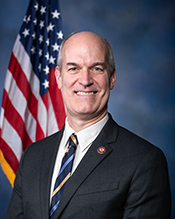0
Airport and Airway Extension Act of 2024
4/6/2024, 12:20 AM
Summary of Bill HR 7454
The main provisions of the bill include allocating funds for the maintenance and improvement of airports, air traffic control systems, and other aviation-related infrastructure. This funding is crucial for ensuring the safety and efficiency of air travel in the United States.
Additionally, the bill includes provisions for modernizing air traffic control systems, improving airport security measures, and enhancing the overall passenger experience. These measures are intended to keep pace with the growing demands of the aviation industry and ensure that the US remains a global leader in air travel. Overall, the Airport and Airway Extension Act of 2024 is a critical piece of legislation that will help support and enhance the nation's aviation infrastructure. It is important for Congress to pass this bill in order to ensure the continued safety and efficiency of air travel in the United States.
Congressional Summary of HR 7454
Airport and Airway Extension Act of 2024
This bill temporarily extends specific Federal Aviation and Administration (FAA) programs and activities through May 10, 2024.
For example, the bill extends the FAA
- Unmanned Aircraft Systems (UAS) pilot programs (e.g., the UAS Test Site Program and the UAS remote detection and identification pilot program),
- weather reporting programs,
- Remote Tower Pilot Program, and
- Essential Air Service Program.
The bill also extends the authorization for the Airport Improvement Program (AIP). (This program provides grants for planning, development, and noise compatibility projects at or associated with certain public-use airports.)
Further, the bill extends through May 10, 2024, the FAA's authority for expenditures from the Airport and Airway Trust Fund (AATF) and to collect various taxes and fees to fund the AATF, including taxes on aviation fuel and airline tickets. (The AATF is the primary funding source for all major FAA accounts that fund federal aviation programs, with the remainder coming from general fund appropriations.)
The bill also extends through May 10, 2024, the authority of the Department of Homeland Security and the Department of Justice to take certain actions to mitigate a credible threat to certain facilities or assets from a UAS. These include certain facilities that are located in the United States and identified as high-risk and a potential target for unlawful UAS activity.

